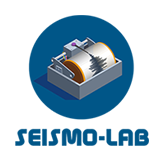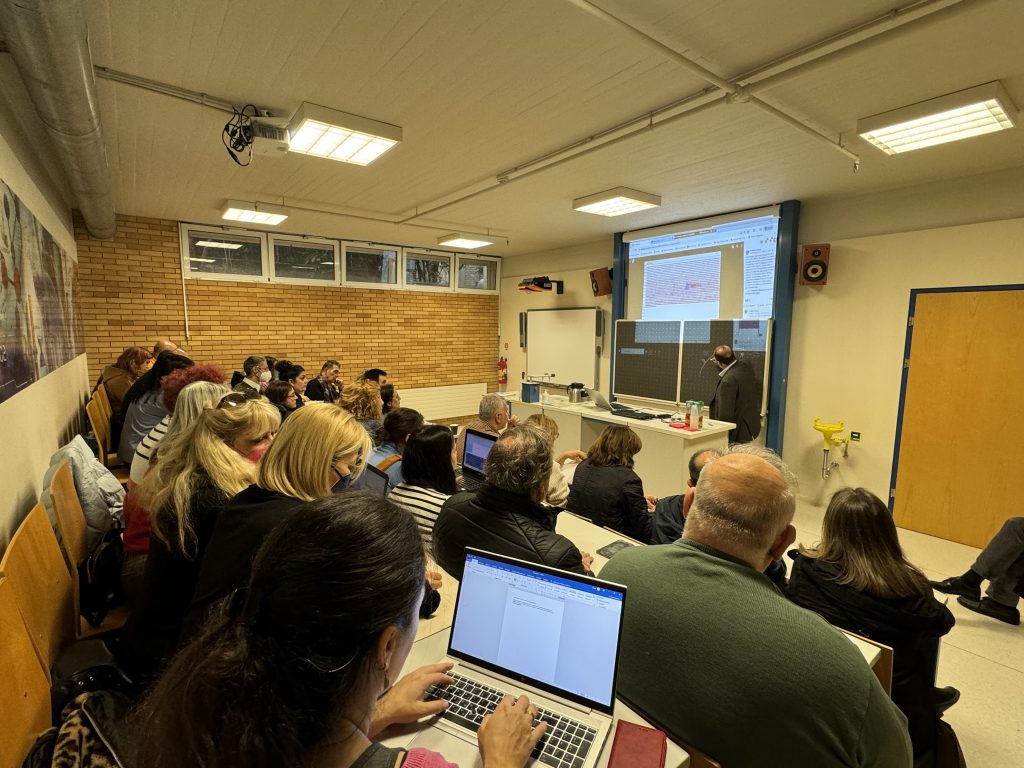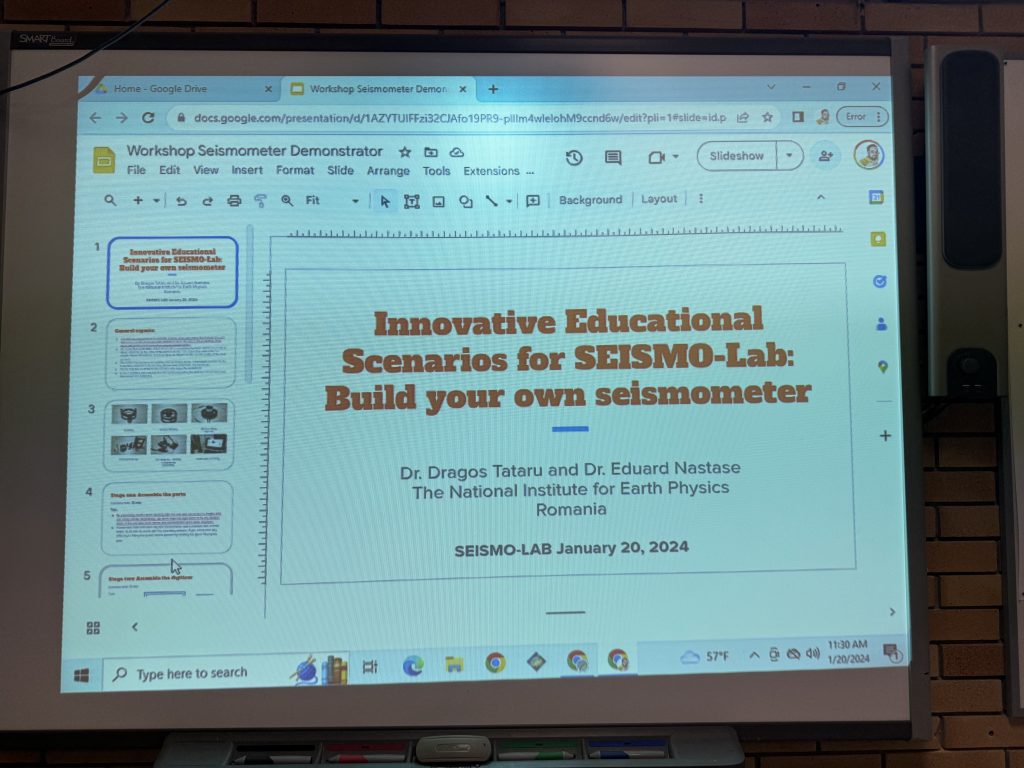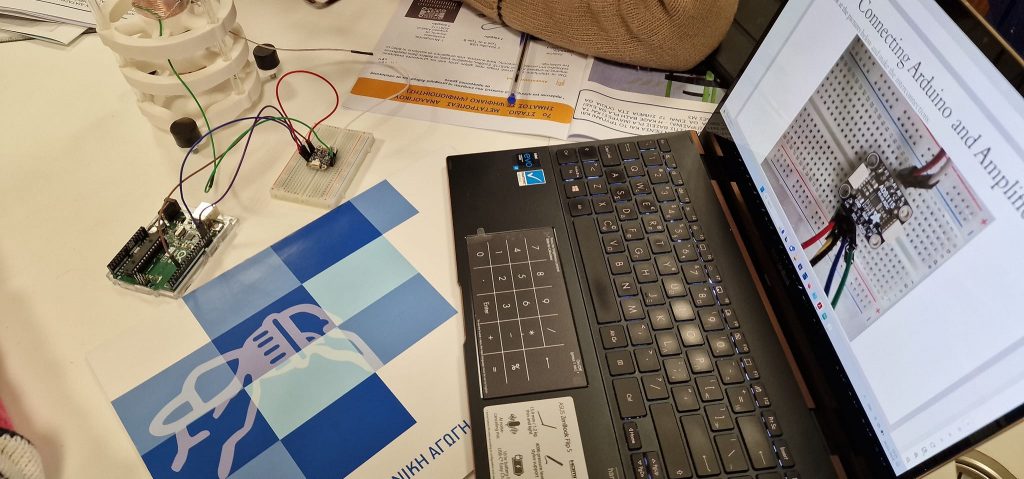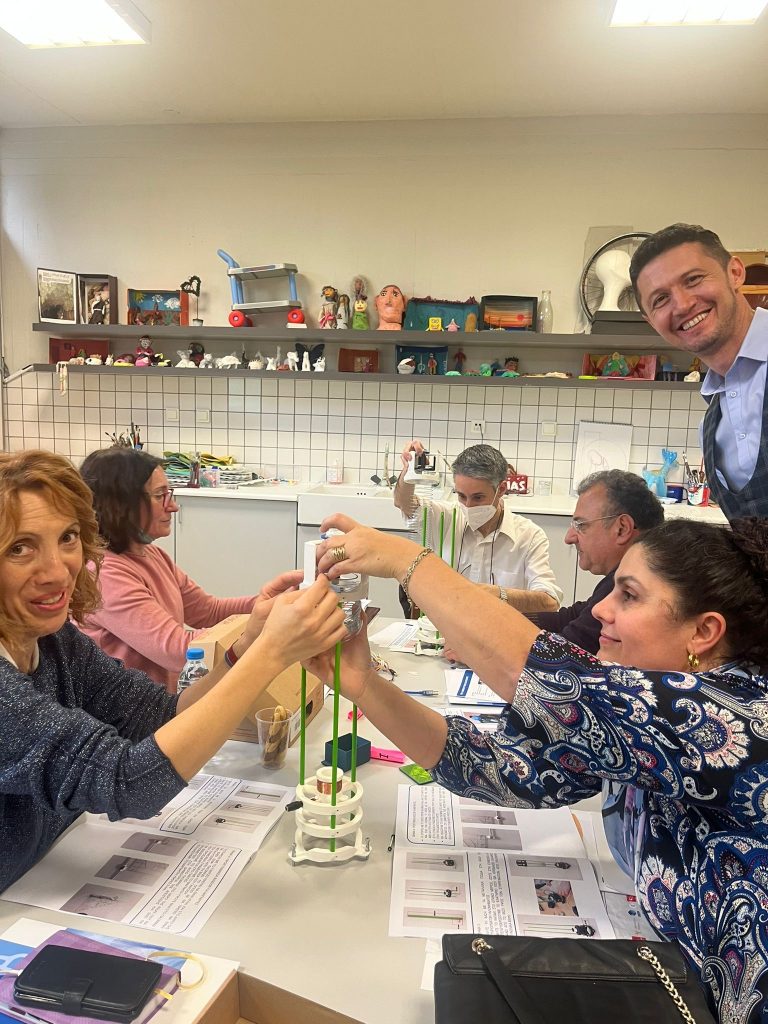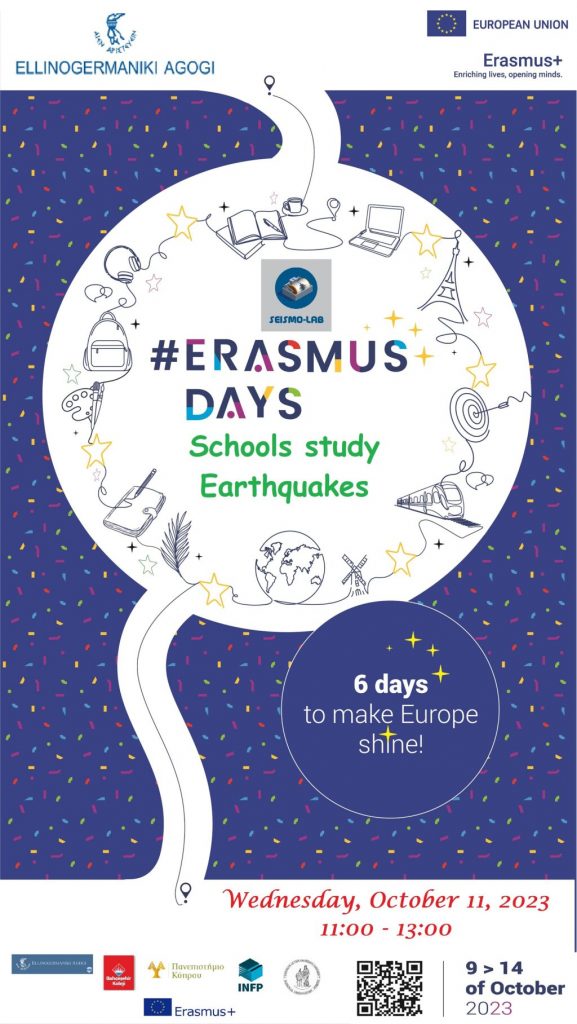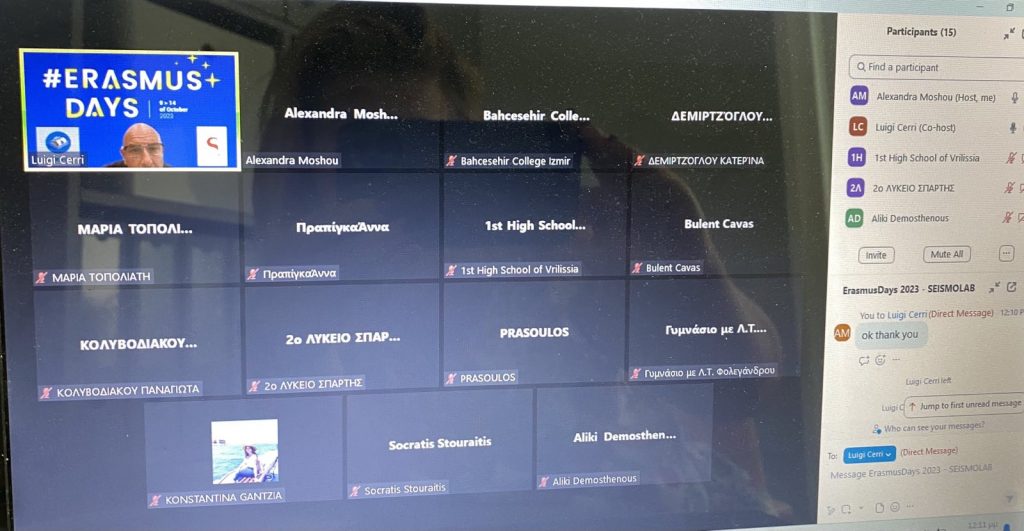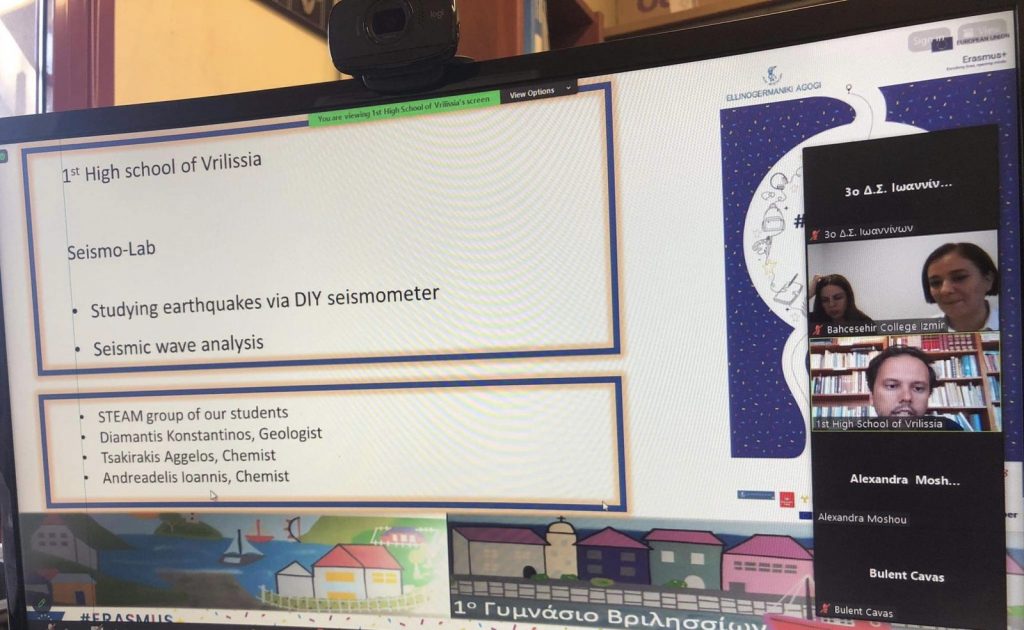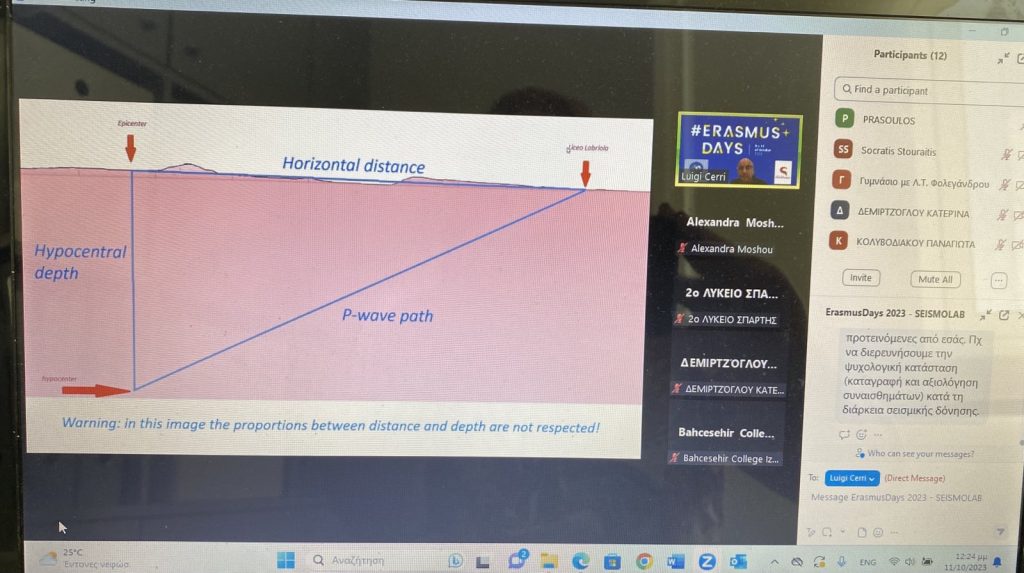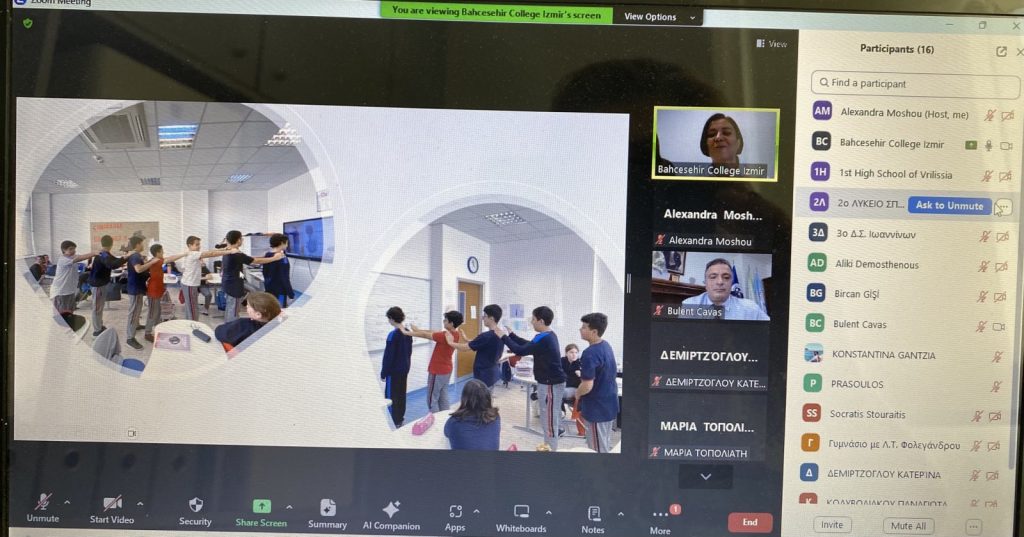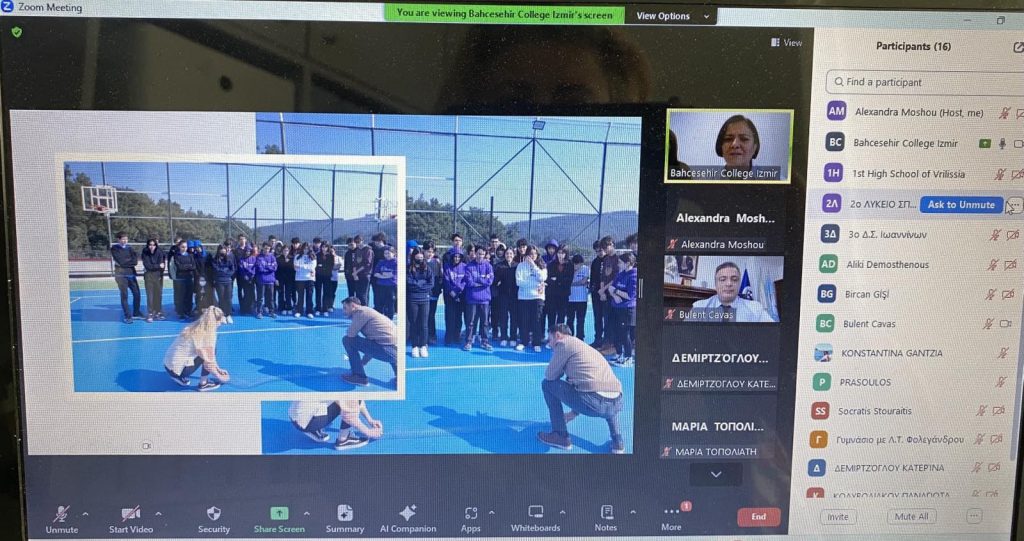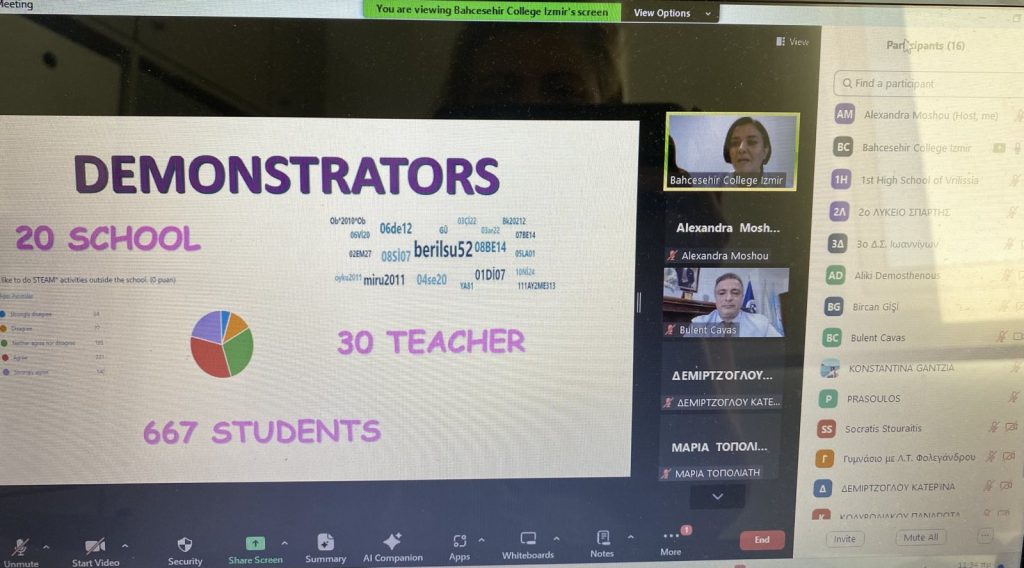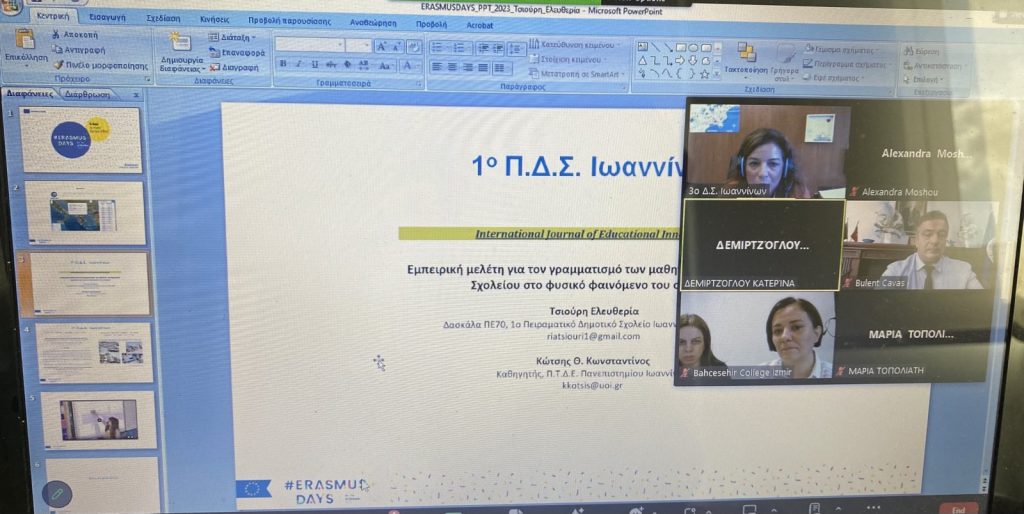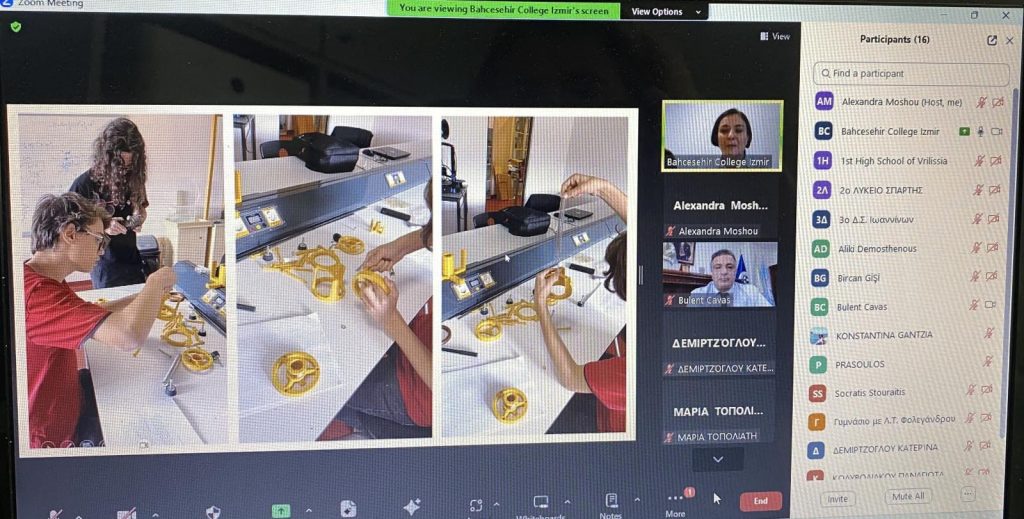EN/GR
List of Activities
Το Σάββατο 20 Ιανουαρίου 2024 πραγματοποιήθηκε το επιμορφωτικό εργαστήριο σεισμολογίας, «τα σχολεία μελετούν τους Σεισμούς» στις εγκαταστάσεις της Ελληνογερμανικής Αγωγής, από το Γεωδυναμικό Ινστιτούτο και την Ελληνογερμανική Αγωγή. Το εργαστήριο διοργανώθηκε στο πλαίσιο του διεθνούς συνεδρίου Learning from the Extremes, υπό την αιγίδα του Ινστιτούτου Εκπαιδευτικής Πολιτικής (ΙΕΠ) και του Ευρωπαϊκού προγράμματος SEISMO – Lab που χρηματοδοτείται από το Πρόγραμμα ERASMUS+ της Ευρωπαϊκής Επιτροπής.
Το εργαστήριο παρακολούθησαν 40 εκπαιδευτικοί πρωτοβάθμιας και δευτεροβάθμιας εκπαίδευσης. Στους εκπαιδευτικούς παρουσιάστηκε η διαδικτυακή πλατφόρμα SEISMO – Lab που λειτουργεί ως εικονικός κόμβος εκπαιδευτικής σεισμολογίας για μαθητές, και εκπαιδευτικούς. Επίσης είχαν την ευκαιρία να παρακολουθήσουν βήμα-βήμα την κατασκευή ενός σχολικού σεισμογράφου και να τον θέσουν σε λειτουργία ώστε να αποτελέσει μέρους του δικτύου. Αυτή η δραστηριότητα αποτέλεσε ένα χαρακτηριστικό παράδειγμα από τις δράσεις που προτείνονται στους εκπαιδευτικούς.
The European program SEISMO – LAB, funded by Erasmus+, participated in Erasmus Day 2023. Entitled: Schools study earthquakes and celebrate Erasmus days, a webinar between its partners and teachers was organized on Wednesday October 11 from 11:00 to 13:00. The invitation was addressed to all partners as well as to teachers whose schools are part of the school seismograph network. Teachers from Greece, Turkey, Cyprus and Italy participated in this webinar.
During this event, the value of seismology in society and its necessity to be included in education through innovative teaching methods were highlighted. In addition to knowledge, students aim to develop 21st century skills. The actions were presented by the teachers who had implemented them in their schools, followed by a constructive discussion with the community as well as a dialogue on future goals and cooperation after the end of the program.
This event was an important opportunity to connect with educators and researchers from all over the world and to share our experiences and expertise with our colleagues from the Erasmus network.
Schools study Earthquakes
Ellinogermaniki Agogi, a partner of the European Program SEISMO – Lab, which is coordinated by the Geodynamic Institute of the National Observatory of Athens, will welcome to the school between 10/26/2023 – 11/01/2023 15 students from 3rd High School from the Tschirnhaus – Gymnasium in the Dresden region of Germany in order to collaborate with their respective classmates on educational seismology issues. During this period, they will deal with the construction of a seismograph.
Ellinogermaniki Agogi, in collaboration with UNESCO, within the framework of the European Program SEISMO – Lab, whose coordinator is the Geodynamic Institute of the National Observatory of Athens, will offer eight seismographs that will be built by students, in schools of the UNESCO network.
Student Visit Report from Tschirnhaus – Gymnasium Dresden, Germany for Training in Educational Seismology in the framework of the SEISMO – Lab Project
The SEISMO-Lab project focuses on creating a set of participatory, interdisciplinary educational scenarios that support students in improving their problem-solving skills and reativity and promoting an approach to action-based learning. It also helps teachers organize activities that allow students to learn, practice, and use scientific instruments and ethods while developing the skills to publish and communicate the results of their study. Finally, expansion of the network of school seismographs and cooperation with schools in ifferent countries is another objective of this project. In the framework of this project, Ellinogermaniki Agogi hosted 15 students from the Tschirnhaus – Gymnasium Dresden School n Germany. The visit of students from the school in Dresden lasted six days (27/10/2023–01/11/2023) during which they participated in various activities. The purpose of the visit as to educate students about the structure and operation of a seismograph, its construction with low-cost materials, and how to acquire and process data using student-friendly software to calculate the epicenter and magnitude of an earthquake. Students had the opportunity to participate in lectures, laboratory exercises, and demonstrations in areas such as seismic wave measurements and seismometer construction.
The results of the visit of students from Dresden are encouraging and have had a positive impact on both the students and the project. During the visit the students showed great interest and enthusiasm. The visit created a valuable intercultural exchange with students from Germany interacting with their classmates from Greece and SEISMO-Lab experts. This exchange of experiences contributes to a broader understanding of the challenges related to earthquakes and students are expected to transfer the knowledge they gain to their ommunities.
The visit of the students from Tschirnhaus-Gymnasium Dresden Germany and collaboration with their classmates from Ellinogermaniki Agogi was a successful opportunity for education, knowledge exchange, and the promotion of new technologies in educational seismology. It is likely to have a long-term impact, not only on students but also on the whole community. In summary, the positive response from students shows that initiatives such as this can only have a positive impact and open up new horizons for education.
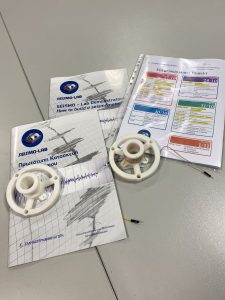 |
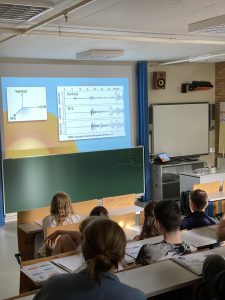 |
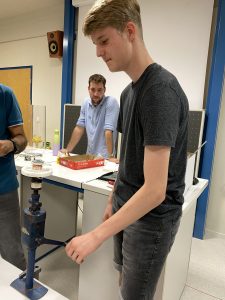 |
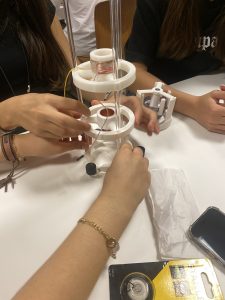 |
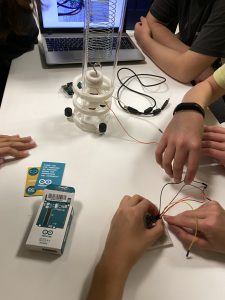 |
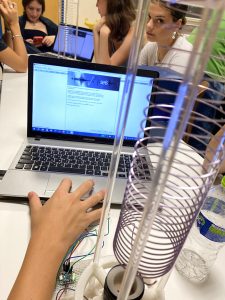 |
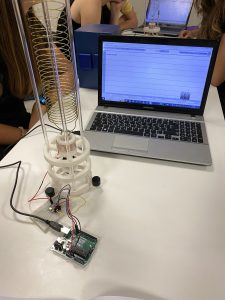 |

